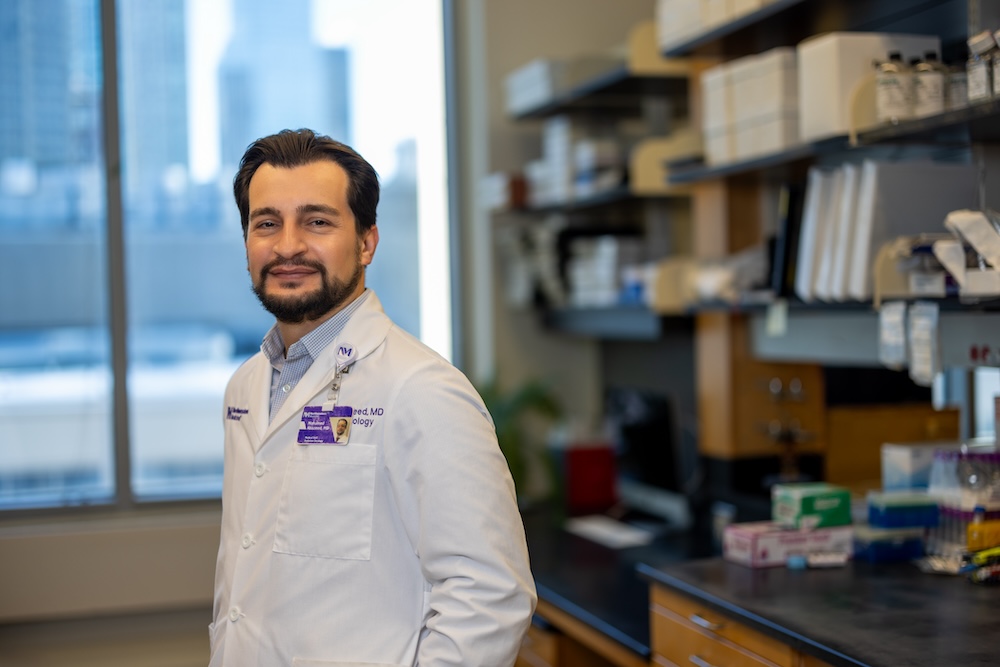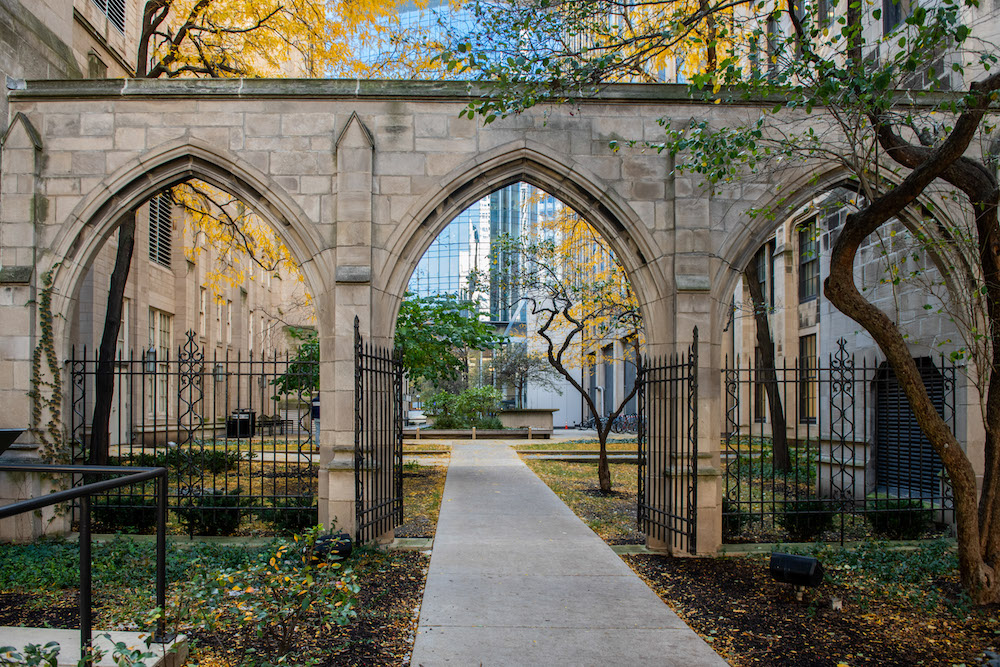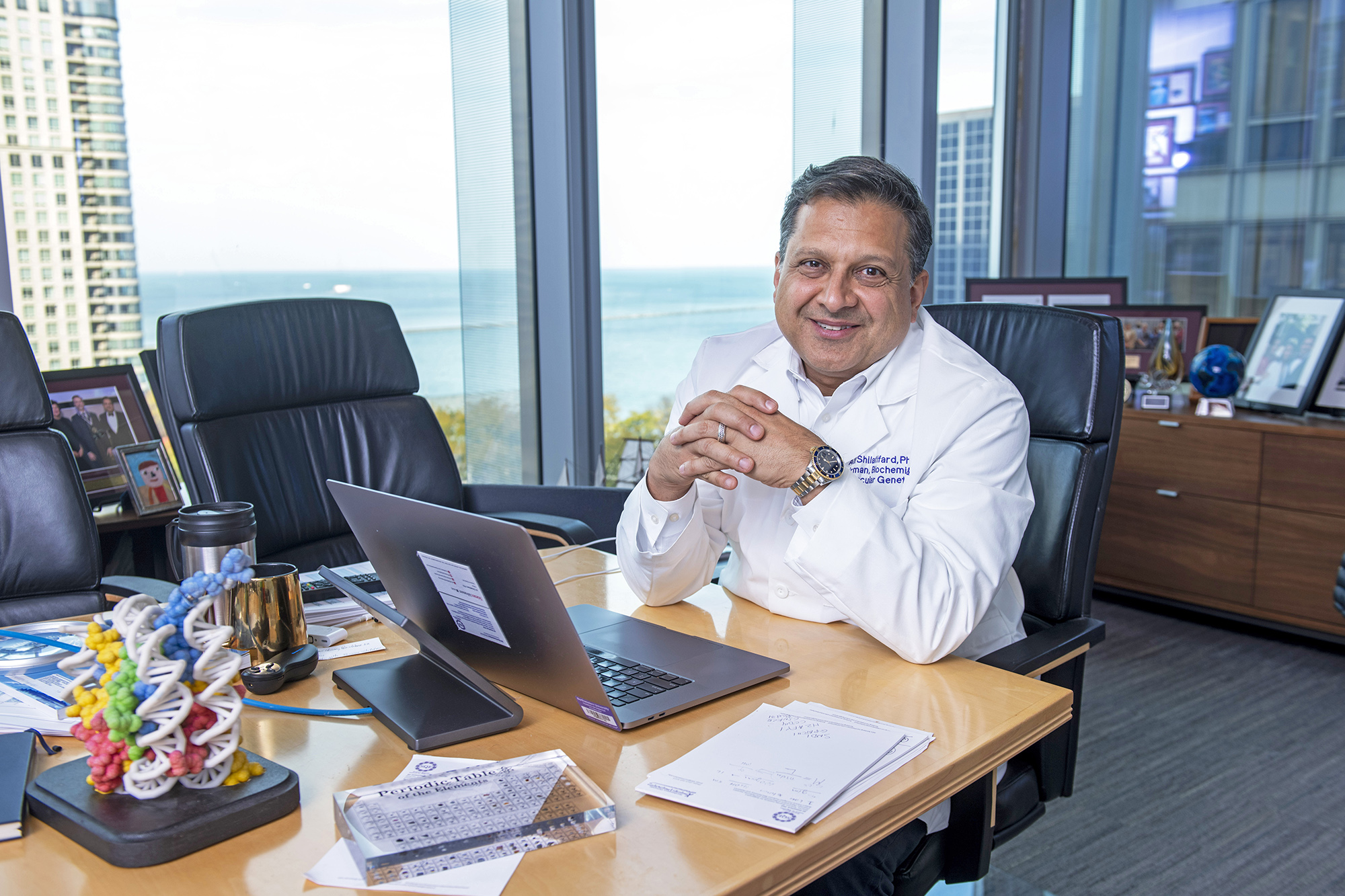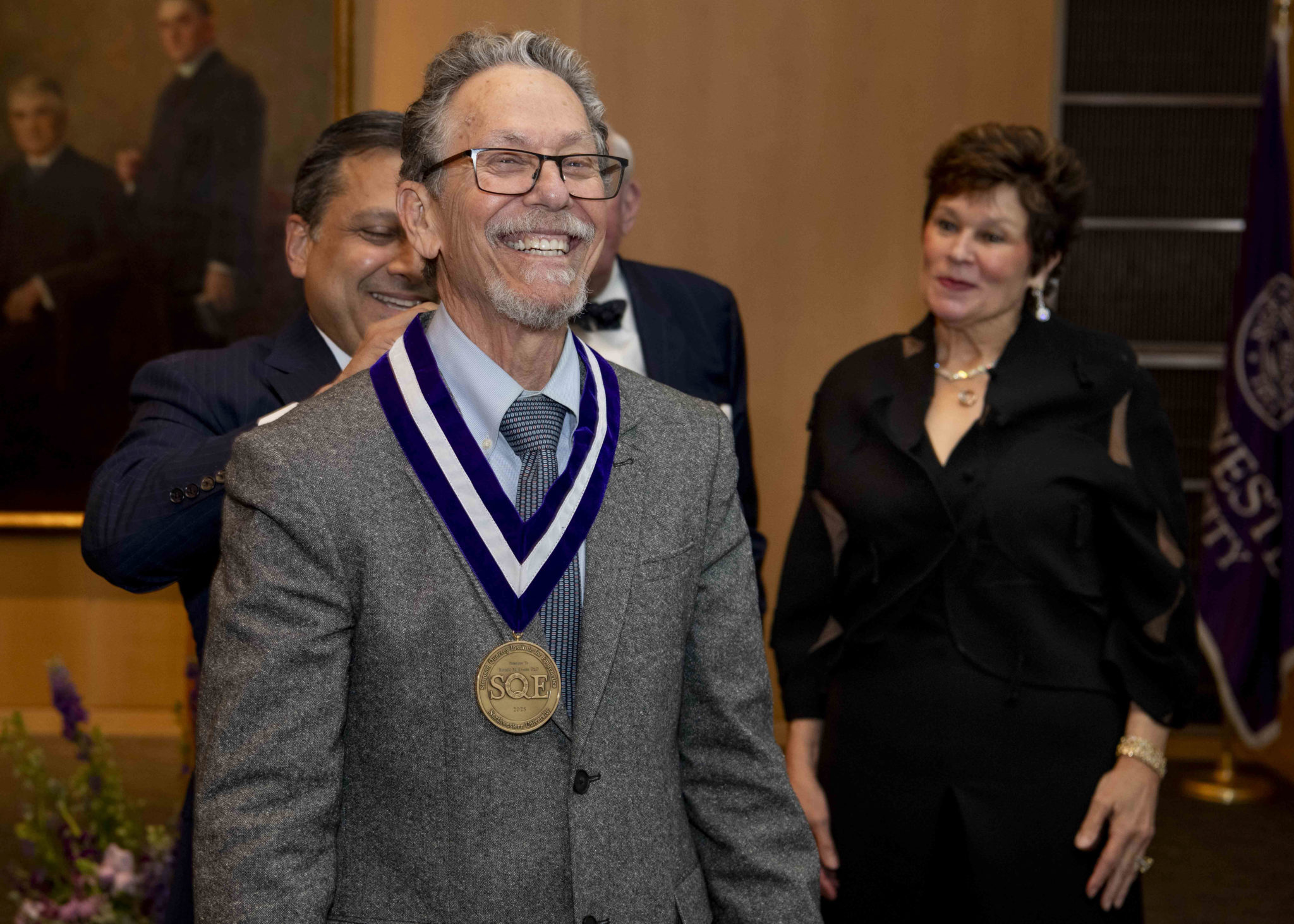Home / Campus News / Media Spotlight
Media Spotlight
A New Prescription: A Dose of Live Music for Hospital Patients
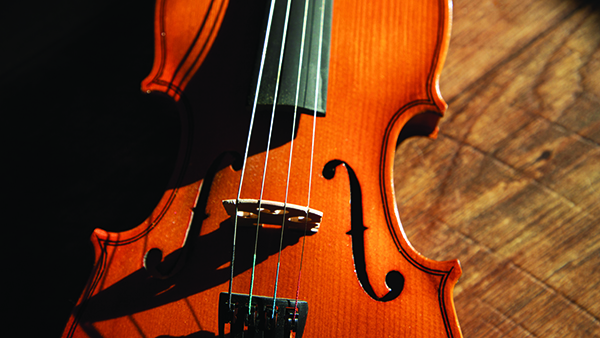
While at Northwestern Memorial Hospital for a week following a stroke, Nancy Storino, 72, listened to Clara Takarabe play songs on her viola over FaceTime as part of a Northwestern neurology study.
Analysis shows listening to music can reduce anxiousness and loneliness for patients. Music helps Parkinson’s sufferers with steadiness and reduces agitation in dementia sufferers; pairing phrases with music can help stroke sufferers with speech.
The research was developed by Borna Bonakdarpour, MD, assistant professor of Neurology, who is also a classically educated pianist, and Takarabe, who has played with the Chicago Symphony Orchestra.
The Wall Street Journal, NBC News
Permanent Nerve Damage for Some COVID-19 Survivors
Placing a hospitalized COVID-19 patient in a face down position to ease breathing — or “proning” — can be a pandemic lifesaver. But a small new study warns that it may lead to permanent nerve damage.
Nerve compression injuries are typically uncommon with regular repositioning and careful padding. “So we were very surprised to find 12 out of 83 patients with nerve injuries,” said Colin Franz, MD, assistant professor of Physical Medicine and Rehabilitation and of Neurology.
The damage included loss of hand function, frozen shoulder, and foot dragging that may lead to a need for a brace, cane, or wheelchair. “Full recovery for nerve damage is estimated to occur in only about 10 percent of patients under the best of circumstances,” Franz explained, adding that the nerve damage might be the longest-lasting effect of COVID-19 for most of these patients.
U.S. News & World Report, HealthDay
COVID-19’s Impact on the Heart: Two New Studies Suggest ‘The Plot Thickening’
With COVID-19, the focus has been primarily on fatality rates, but more attention needs to be paid to those who survive, yet don’t entirely recover.
Clyde Yancy, MD, chief of Cardiology in the Department of Medicine, and Gregg Fonarow of the University of California, Los Angeles, co-authored an editorial that accompanied two new studies in JAMA Cardiology about long-term implications of the virus on the heart.
“We see the plot thickening and we are inclined to raise a new and very evident concern that cardio-myopathy and heart failure related to COVID-19 may potentially evolve as the natural history of this infection becomes clearer,” Yancy and Fonarow wrote.
“We wish not to generate additional anxiety but rather to incite other investigators to carefully examine existing and prospectively collect new data in other populations to confirm or refute these findings,” they wrote.
CNN, The Washington Post
Children May Carry Coronavirus at High Levels, Study Finds
A study led by Taylor Heald-Sargent, MD, assistant professor of Pediatrics in the Division of Infections Diseases, found that infected children have at least as much of the coronavirus in their noses and throats as infected adults — though this measurement does not necessarily prove children are passing the virus to others.
Caveats of the study include: It was small and did not specify participants’ race or sex, nor whether they had underlying conditions; also, the tests looked for viral RNA, rather than the live virus itself. Still, the findings should influence the reopening schools, according to several experts.
“The school situation is so complicated — there are many nuances beyond just the scientific one,” said Heald-Sargent. “But one takeaway from this is that we can’t assume that just because kids aren’t getting sick, or very sick, that they don’t have the virus.”
The New York Times, The Washington Post, HealthDay, WebMD



